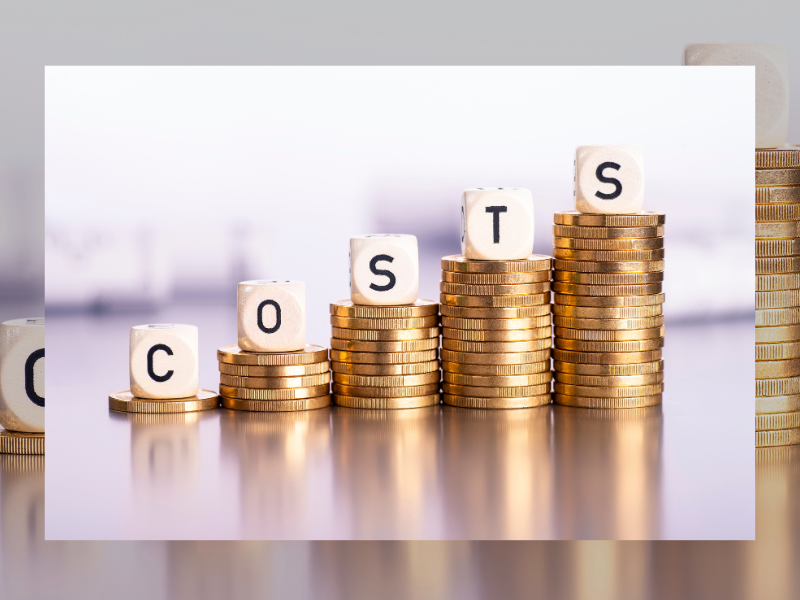By
Juliette Savage, Commercial Director, Green Gift Cards
Jan 27, 2021

We often see the word ‘sustainability’ alongside “green” and “eco-friendly” when it comes to online information about protecting our environment. However, there can often be a little confusion around what sustainability really means for an individual or business.
As a result, we want to break down for our customers what ‘sustainable’ means when we’re talking about our Green Gift Cards and how we can, together, help fight against plastic pollution.
Sustainability
Noun
- the ability to be maintained at a certain rate or level.
o “the sustainability of economic growth”
- avoidance of the depletion of natural resources in order to maintain an ecological balance
o “the pursuit of global environmental sustainability”
Source: Google English Dictionary
So, what does sustainability actually mean?
It’s important to understand what sustainability means, not just for our consumers, but how it is interpreted by different brands and product offerings too. The quote above is quite simple, yet, in reality, the meaning can be interpreted differently by different businesses and customers. Being sustainable allows you to live in a way that supports yourself and the environment around you, which is why it is integral to find the meaning for your business based on your own positioning and strategy.
Consumers are becoming more and more aware of how their habits are affecting the environment. The shift in the UK particularly has been due to television programmes such as David Attenborough’s ‘Blue Planet 2’ and more recently BBC’s ‘Drowning in Plastic’. However, there is still a perception that to live more sustainably is more expensive and choices are limited, compared to the cheaper alternatives.
At Green Gift Cards, we believe that understanding the importance and function of sustainability in our everyday lives can help businesses to look at their current strategies and respond to the consumers’ needs whilst protecting the planet as best we can.

How can I make a difference?
Everything we do has a carbon footprint, every decision we make each day impacts the environment around us, from how long we take in the shower through to the food we eat.
Your contribution can make a massive difference, even if it’s just a small change to your everyday routine.
Here are a few changes, we suggest, that can help to reduce your impact on the environment:
1. Have more awareness about what you consume
Try to think about where the product is coming from and where they might end up once you no longer have use for it? Bear in mind that cheaper products tend to be overproduced and are unlikely to be made of sustainable or responsibly sourced materials. As sadly as is the case, this means they are more likely to end up in a landfill.
2. Try and reduce your plastic consumption
Going completely plastic-free can be tricky, but plastic stays around for a long time, so there more we consume, the more there will still be lying around our land and in our oceans. We have all seen the pictures and read the stories, but the situation still remains. Around 40% of the world’s oceans surfaces contain plastic causing chaos to marine animals that either digest, or get tangled up in, the debris. A few simple ways you can cut down on your plastic waste include using reusable bags when you shop, ditching single-use water bottles and avoiding products made from or packaged in plastic whenever possible.
3.Turn it off when not in use
Remember getting nagged to turn the lights off when you leave a room? It’s not just to save yourself money, but also to help keep our planet alive too.
Whether it is your TV on standby or your tap whilst you brush your teeth, try and turn them off when you can. Small changes add up to make a big difference. It’s also easy to switch energy- efficient products in your home where you can. With the availability of smart technology, it’s so easy now to set them up to turn off when not in use, it’s hardly any effort at all!
4.Travel wisely
Within the transport sector, road transport is the largest contributor to global warming. Leaving your car at home and taking more sustainable modes of transportation will benefit you and your environment. It may be as simple as taking public transport, car sharing, walking or cycling where you can.

How can the gift card industry make a difference?
Being more sustainable in business is not only good for the planet but good for your brand reputation as well. A number of retailers have already been making great progress in their CSR strategies. M&S launched Plan A in 2007, they committed to reduce their social and environmental footprint across its stores and supply chain and have a goal to be the world’s most sustainable major retailer. In 2017 they made some bold statements in their Plan A 2025 vision including ensuring their key raw materials comes from a sustainable source and improving on their zero waste to landfill across their operation to be zero waste across their whole supply chain including the end product for the customer.
Boots have also made great progress this year by removing all secondary single-use plastic from their Christmas gift range, eliminating more than 2,020 tonnes. They have also removed the plastic lamination and glitter from single-use paper, improved on recycling labelling and have also launched the BBC Earth range, the UK’s first certified carbon neutral gifting range.
We make green gift cards to help with the fight against plastic pollution, not just for businesses but for consumers too. Our products are better for the environment from the creative process through to recycling the end product.
There are a few ways that you can make a difference as a business:
Maximise recyclability
Use products and materials that don’t go into landfill or incineration. Seeking out alternative options doesn’t necessarily mean more expense. Not only can alternatives be cost comparable they are often preferred by customers. More consumers are demanding green alternatives so if they are presented with a green option, they will likely opt for that over non-environmentally friendly options.
Review your supply chain
Are you working with the most sustainable partners? Do they have a CSR agenda? Green procurement can make a big difference to your carbon footprint, sourcing goods and services that are produced sustainably can help to reduce waste, lower greenhouse gas emissions and converse energy and water.
Offset your carbon footprint
Put simply carbon offsetting means purchasing carbon credits equivalent to your carbon impact, these credits are then used to fund projects that reduce greenhouse gas emissions. It is a popular choice for many businesses; however, it is important to look at reducing your footprint before you look to offset it. Once you have reduced your carbon footprint, carbon offsetting is a way to take full responsibility for residual carbon emissions.
Working from home
2020 has been the year of embracing home working. Just a few days at home results in less electricity being used, by avoiding the commute, your carbon footprint is reduced, and fewer disposable office supplies being used means less waste.
Educating people about sustainability is crucial. If this article is simply reiterating something that you already know then that’s great news! We are hoping to ignite a desire to change and pass the message on so we can all work together for a more sustainable planet.






Share on social media